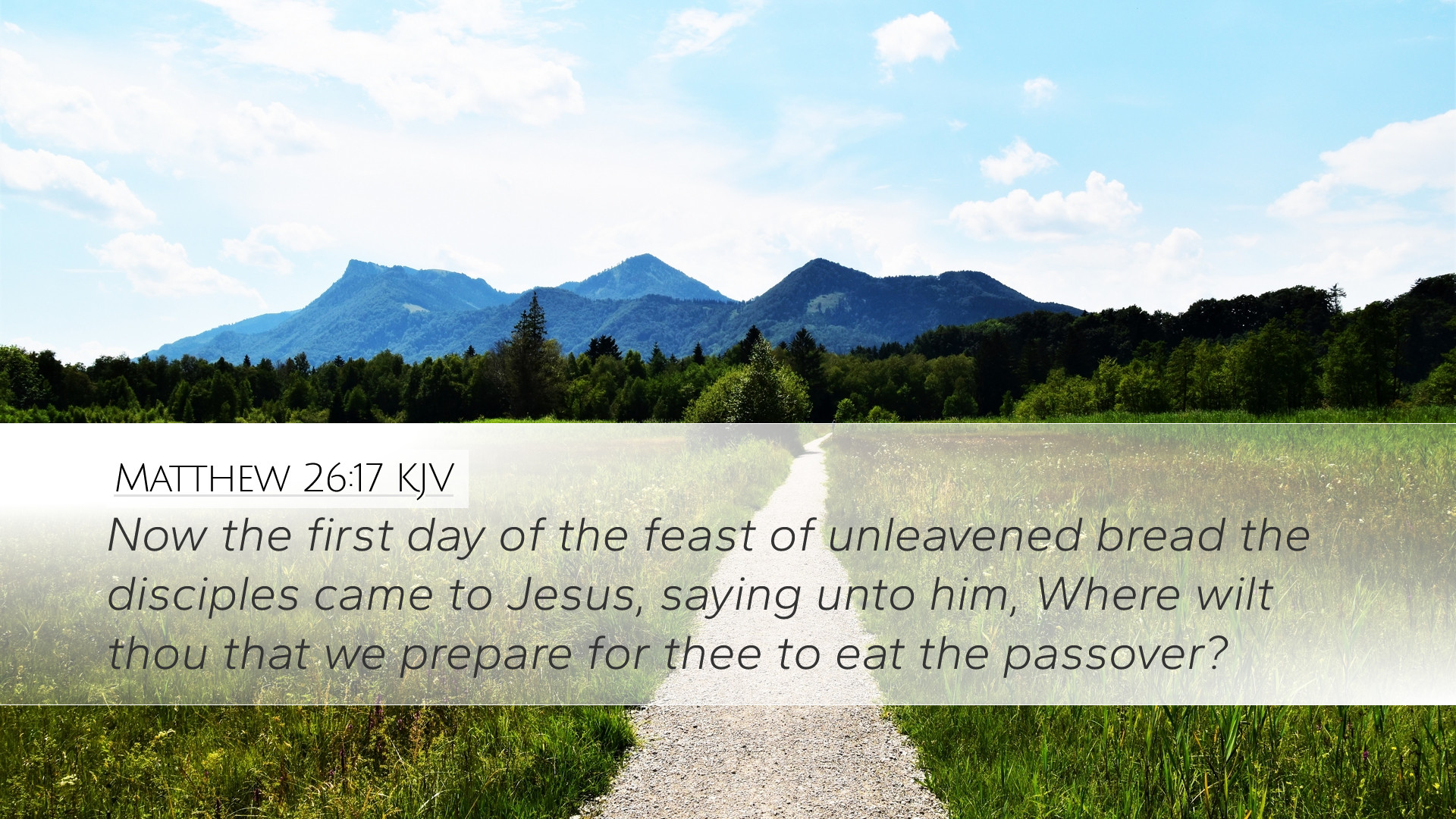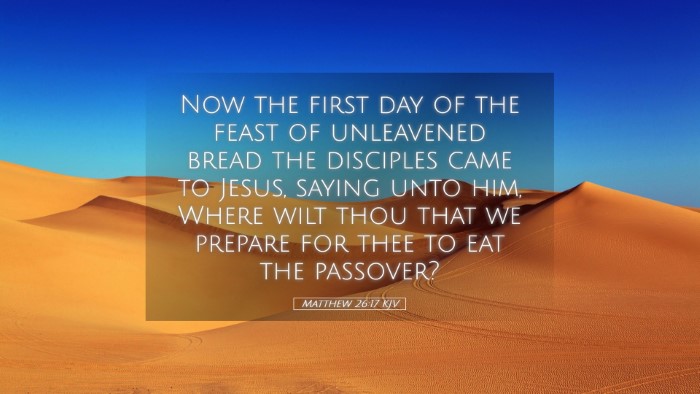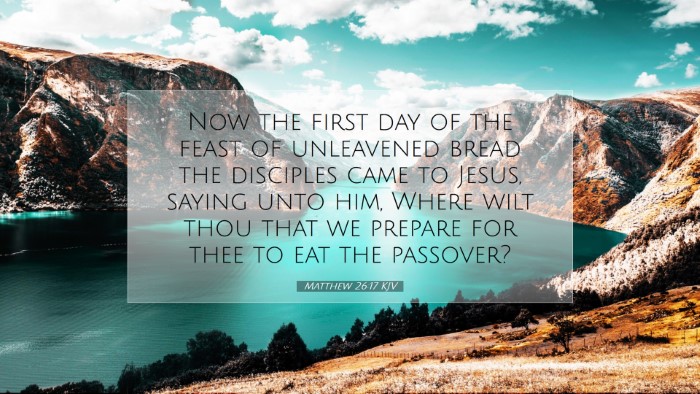Commentary on Matthew 26:17
Matthew 26:17 states: "Now the first day of the feast of unleavened bread the disciples came to Jesus, saying unto him, Where wilt thou that we prepare for thee to eat the passover?"
Introduction
This verse introduces a pivotal moment in Matthew's Gospel, marking the approach of the Last Supper and the events leading to the crucifixion of Jesus. The context of the Jewish Passover is critical, as it symbolizes deliverance and divine providence.
Theological Significance
The feast of unleavened bread, which is intricately linked to Passover, carries deep symbolism in the context of redemption. In this way, the events of the last supper unfold within the framework of God's redemptive plan for humanity.
1. The Passover and Its Significance
The Passover commemorates Israel’s deliverance from Egyptian bondage, a theme of liberation that resonates throughout scripture. Just as the lamb's blood marked the homes of the Israelites, signifying their safety from judgment, Jesus is seen as the ultimate Passover Lamb (1 Corinthians 5:7).
-
Matthew Henry: Notes that the timing is significant, linking the redemption from Egypt to the redemption offered through Christ’s sacrifice.
-
Albert Barnes: Emphasizes the obedience of the disciples in seeking to prepare the Passover, showcasing their faithfulness in following the commandments.
-
Adam Clarke: Points out the cultural practices surrounding the Passover meal, highlighting the importance of communal remembrance.
2. The Role of the Disciples
The disciples' inquiry about preparing for the Passover indicates their active participation in the unfolding drama of salvation history. Their question reflects a desire to honor their Teacher and fulfill Jewish customs while being part of God's plan.
-
Matthew Henry: Comments on the trust the disciples have in Jesus, indicating their readiness to serve in preparation.
-
Albert Barnes: Suggests that the disciples' question denotes their understanding of Jesus' authority and their reliance upon Him.
-
Adam Clarke: Focuses on the communal aspect of the meal, revealing the importance of gathering for worship and remembrance among believers.
Preparation for the Passover
The emphasis on preparation pertains not only to physical arrangements but also to the spiritual readiness of the disciples. This moment serves as an illustration of the relationship between faith and action—a theme prevalent throughout the New Testament.
1. Spiritual Readiness
The act of preparing for the Passover also symbolizes spiritual vigilance. The disciples are called not just to prepare the meal but also to understand the deep significance of what this meal involves—facing betrayal, suffering, and ultimately, resurrection.
-
Matthew Henry: Stresses the necessity of being spiritually prepared for the sacrificial act that Jesus is about to undertake.
-
Albert Barnes: Emphasizes the need for believers to prepare their hearts for communion with Christ, even amidst trials.
-
Adam Clarke: Encourages anticipation of divine revelation and grace that the meal represents.
2. The Implications of the Last Supper
The Last Supper transforms the ritual of Passover into a new covenant, establishing a framework for the Christian sacrament of Communion. This moment is not merely a meal but a declaration of salvation history that covenants between God and humanity.
-
Matthew Henry: Notes that the Lord's Supper is a continual reminder of Christ's atonement.
-
Albert Barnes: Suggests that the traditions surrounding Passover provide clarity to the events of the Last Supper, grounding them in Jewish heritage.
-
Adam Clarke: Highlights the transition from the old covenant to the new, emphasizing Jesus as the fulfillment of the law.
Conclusion
Matthew 26:17 serves as both a historical and theological bridge to profound understandings of the Last Supper. The verse encapsulates the significance of preparation, both physically and spiritually, and casts light on the obedience of the disciples amid Jesus' impending sacrifice.
For pastors, students, theologians, and Bible scholars, this passage insists that the observance of Christ’s last meal is not just a remembrance of past events but a call to live out the implications of Christ’s sacrificial love in our daily lives.


